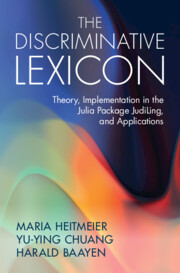Refine listing
Actions for selected content:
1299974 results in Books
Copyright page
-
- Book:
- Five Economies of World Literature
- Published online:
- 09 December 2025
- Print publication:
- 29 January 2026, pp vi-vi
-
- Chapter
- Export citation
Glossary of Keywords
-
- Book:
- Peasants to Paupers
- Published online:
- 24 December 2025
- Print publication:
- 29 January 2026, pp xv-xvii
-
- Chapter
-
- You have access
- Open access
- HTML
- Export citation

Charismatic Nations
- A Cultural History of Nationalism in Europe from 1800 to the Present
- Coming soon
-
- Expected online publication date:
- January 2026
- Print publication:
- 31 January 2026
-
- Book
- Export citation
Index
-
- Book:
- Ottoman Reform at Work
- Published online:
- 19 December 2025
- Print publication:
- 29 January 2026, pp 299-310
-
- Chapter
- Export citation
Part III - The Class on the Move
-
- Book:
- Ottoman Reform at Work
- Published online:
- 19 December 2025
- Print publication:
- 29 January 2026, pp 201-267
-
- Chapter
- Export citation
Part I - Prosperity in International Trade Law as a Mirage
-
- Book:
- Regional Trade Agreements, Prosperity and the Global South
- Published online:
- 23 December 2025
- Print publication:
- 29 January 2026, pp 7-84
-
- Chapter
- Export citation

Governing AI
- A Primer
- Coming soon
-
- Expected online publication date:
- January 2026
- Print publication:
- 31 January 2026
-
- Book
- Export citation

Cold War Liberalism
- Power in a Time of Emergency
- Coming soon
-
- Expected online publication date:
- January 2026
- Print publication:
- 31 January 2026
-
- Book
- Export citation
Bibliography
-
- Book:
- Family, Vocation, and Humanism in the Italian Renaissance
- Published online:
- 18 December 2025
- Print publication:
- 29 January 2026, pp 201-213
-
- Chapter
- Export citation
7 - Will there be Solidarity in Data-Driven Societies?
-
-
- Book:
- The Question of Solidarity in Law and Politics
- Published online:
- 22 December 2025
- Print publication:
- 29 January 2026, pp 139-158
-
- Chapter
-
- You have access
- Open access
- HTML
- Export citation
Abbreviations
-
- Book:
- Making Babies in Early Modern England
- Published online:
- 12 December 2025
- Print publication:
- 29 January 2026, pp xi-xii
-
- Chapter
-
- You have access
- Open access
- HTML
- Export citation
6 - ‘Ordering’ Infants
-
- Book:
- Making Babies in Early Modern England
- Published online:
- 12 December 2025
- Print publication:
- 29 January 2026, pp 166-202
-
- Chapter
-
- You have access
- Open access
- HTML
- Export citation
Bibliography
-
- Book:
- George Frideric Handel
- Published online:
- 23 December 2025
- Print publication:
- 29 January 2026, pp 684-693
-
- Chapter
- Export citation
1751–1752
- from The Documents 1750–1755
-
- Book:
- George Frideric Handel
- Published online:
- 23 December 2025
- Print publication:
- 29 January 2026, pp 175-296
-
- Chapter
- Export citation
Part II - Artistic Practices, Racism and Anti-Racism
-
- Book:
- Art and Anti-Racism in Latin America
- Published online:
- 19 December 2025
- Print publication:
- 29 January 2026, pp 135-276
-
- Chapter
-
- You have access
- Open access
- HTML
- Export citation
10 - Conclusion
-
- Book:
- Black Voices in the Halls of Power
- Print publication:
- 29 January 2026, pp 187-206
-
- Chapter
- Export citation
3 - Observing and Explaining Policy Triage
-
- Book:
- Triage Bureaucracy
- Published online:
- 24 December 2025
- Print publication:
- 29 January 2026, pp 35-49
-
- Chapter
-
- You have access
- Open access
- HTML
- Export citation
2 - The Cosmopolitics of Indigenous Anti-Racist Art and Literature in Brazil
- from Part I - Art and Anti-Racism in the Nation
-
-
- Book:
- Art and Anti-Racism in Latin America
- Published online:
- 19 December 2025
- Print publication:
- 29 January 2026, pp 72-96
-
- Chapter
-
- You have access
- Open access
- HTML
- Export citation

The Discriminative Lexicon
- Theory, Implementation in the Julia Package JudiLing, and Applications
- Coming soon
-
- Expected online publication date:
- January 2026
- Print publication:
- 31 January 2026
-
- Book
- Export citation
Acknowledgments
-
- Book:
- Ottoman Reform at Work
- Published online:
- 19 December 2025
- Print publication:
- 29 January 2026, pp x-xiii
-
- Chapter
- Export citation
